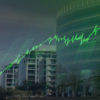In today’s rapidly evolving economic landscape, uncertainty has become a defining feature of the commercial real estate (CRE) market. Between fluctuating interest rates, shifts in tenant demand, regional banking instability, and a complex regulatory environment, investors are finding it harder than ever to read about the market and make confident decisions. This is where an experienced commercial real estate broker becomes not just an asset – but a strategic partner.
Today’s Uncertainty in Commercial Real Estate
Over the past few years, CRE investors have had to adjust to a variety of market disruptions:
-
Interest rate volatility: As the Federal Reserve continues to battle inflation, rate hikes have driven borrowing costs, directly impacting deal flow and cap rate expectations.
-
Shifting tenant preferences: The rise of remote and hybrid work models has altered demand for office space, while the medical, industrial, and life sciences sectors are gaining momentum.
-
Capital markets tightening: Lenders are more cautious, underwriting is stricter, and equity partners are demanding more favorable terms.
-
Local market dynamics: Some submarkets remain resilient, while others are experiencing prolonged vacancies or oversupply issues.
For many investors, this patchwork of risks creates analysis paralysis. The right broker steps in to provide clarity.
More Than a Middleman: The Broker as Strategic Advisor
The outdated image of brokers as simple deal facilitators is long gone. In uncertain times, brokers become embedded advisors offering a full spectrum of guidance.
1. Market Intelligence and Data Access
Great brokers have access to both macroeconomic trends and hyperlocal market data – information that’s often difficult for individual investors to compile on their own. Through several types of tools, brokers monitor tenant migration patterns, sales comps, absorption rates, and new development pipelines. This real-time insight allows investors to adjust their strategies before trends are fully priced in.
2. Underwriting Support and Deal Structuring
In a tight market, understanding a deal’s upside and downside is critical. Brokers often act as a second set of eyes on underwriting models, highlighting red flags, revisiting lease assumptions, or structuring creative solutions like sale-leasebacks, owner/user purchases, or 1031 exchanges. These strategies can be instrumental in preserving investor flexibility while mitigating risk.
3. Access to Off-Market Opportunities
With inventory down and competition up, many of the best deals never hit the public market. Brokers with deep local relationships can uncover off-market properties, distressed sales, or early-stage developments that match an investor’s goals. In markets like Phoenix, this access is a game-changer, especially in sectors like medical offices or retail repositioning.
4. Navigating Entitlements, Zoning, and Due Diligence
When acquiring or developing in an uncertain regulatory environment, brokers who understand zoning, site plan approval processes, and use permits become invaluable. For example, identifying a site near a growing medical corridor is just the first step, understanding the required entitlements and how long they’ll take to make or break the deal.
5. Relationship Management
Uncertainty can also increase the number of stakeholders in a transaction – lenders, equity partners, appraisers, attorneys, and municipalities all have more questions and tighter tolerances. A seasoned broker acts as the hub of communication, aligning everyone toward a common goal and keeping deals on track.
The Human Element: Confidence and Conviction
Perhaps the most overlooked role a broker plays during times of uncertainty is that of a decision-making coach. When the market sends mixed signals, even sophisticated investors may hesitate. An experienced broker helps clients weigh risks with perspective, understand worst-case scenarios, and move forward with confidence.
This is particularly true when investors are new to the market. In Arizona, for instance, population growth and medical expansion are creating strong long-term fundamentals, but not all submarkets are equal. Having a broker who understands local politics, infrastructure investments, and employer migration patterns can provide the conviction needed to act.
Why Brokers Matter More Than Ever
In an upward market, almost any deal can look like a winner. In times of uncertainty, your broker can mean the difference between a smart acquisition and a missed opportunity – or worse, a costly mistake. The value isn’t just in closing the deal – it’s in making sure it’s the right deal for the right reasons.
Partner with the ICRE Investment Team
At the ICRE Investment Team, we specialize in helping commercial real estate investors navigate uncertainty with strategy and insight. From medical office to mixed-use, land development to stabilized retail, we combine market intelligence, underwriting acumen, and creative structuring to help you make decisions with clarity and confidence.
Whether you’re buying, selling, or repositioning an asset, our team is here to provide more than just brokerage – we offer a full-spectrum advisory approach designed to align with your investment goals.
Let’s connect and turn uncertainty into opportunity.
Visit https://investingincre.com or contact us today to learn how the ICRE Investment Team can support your next move.
















